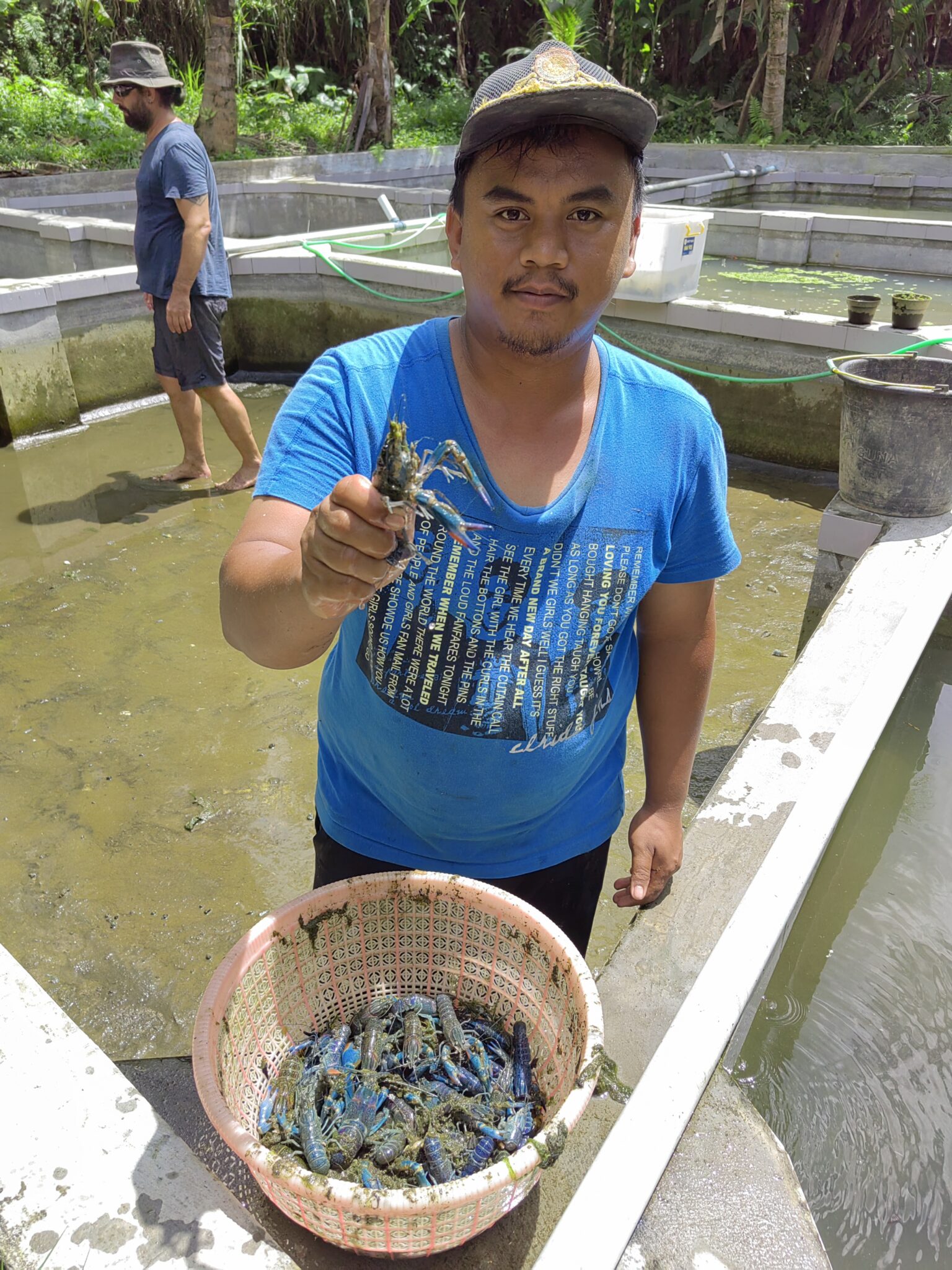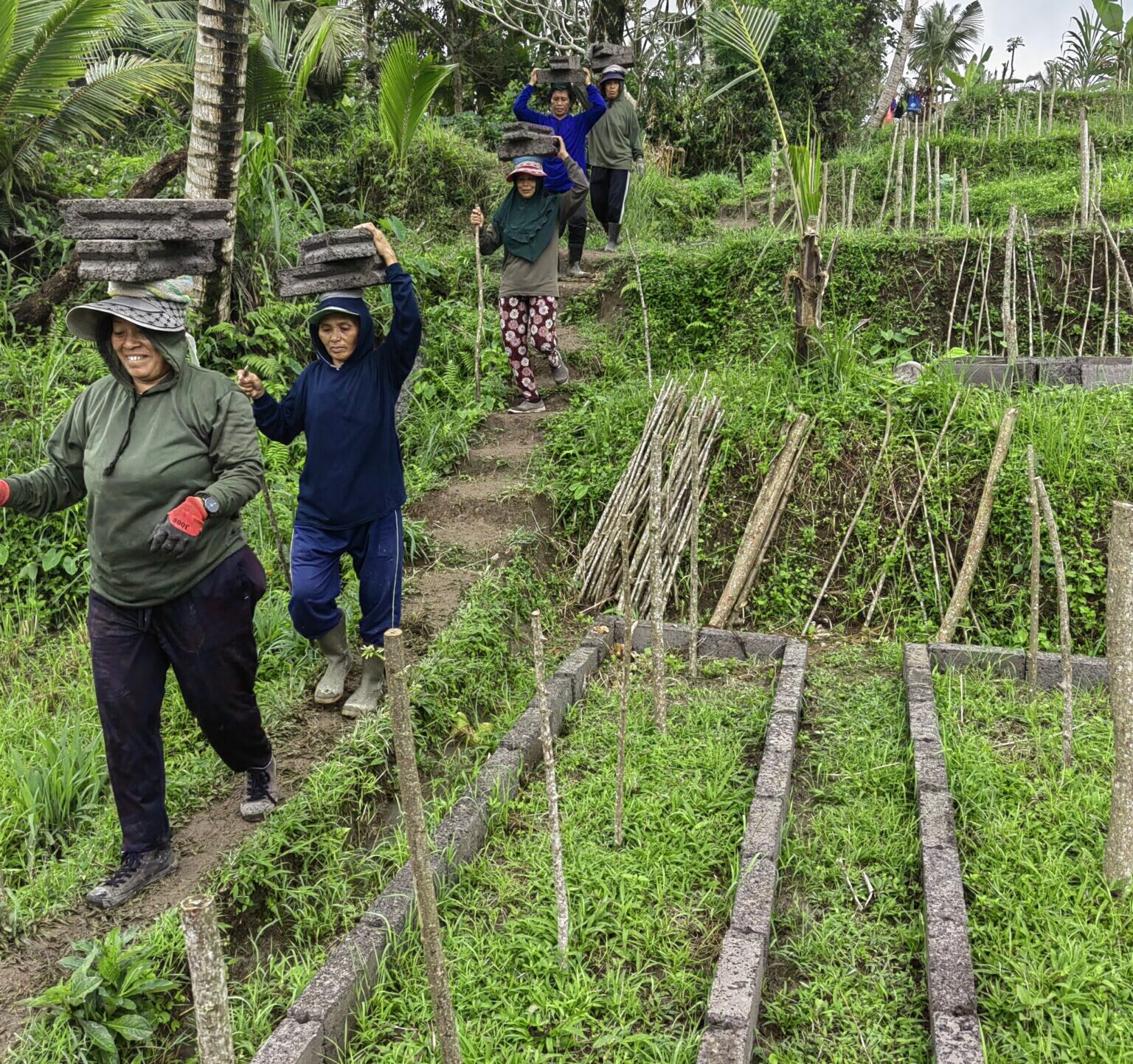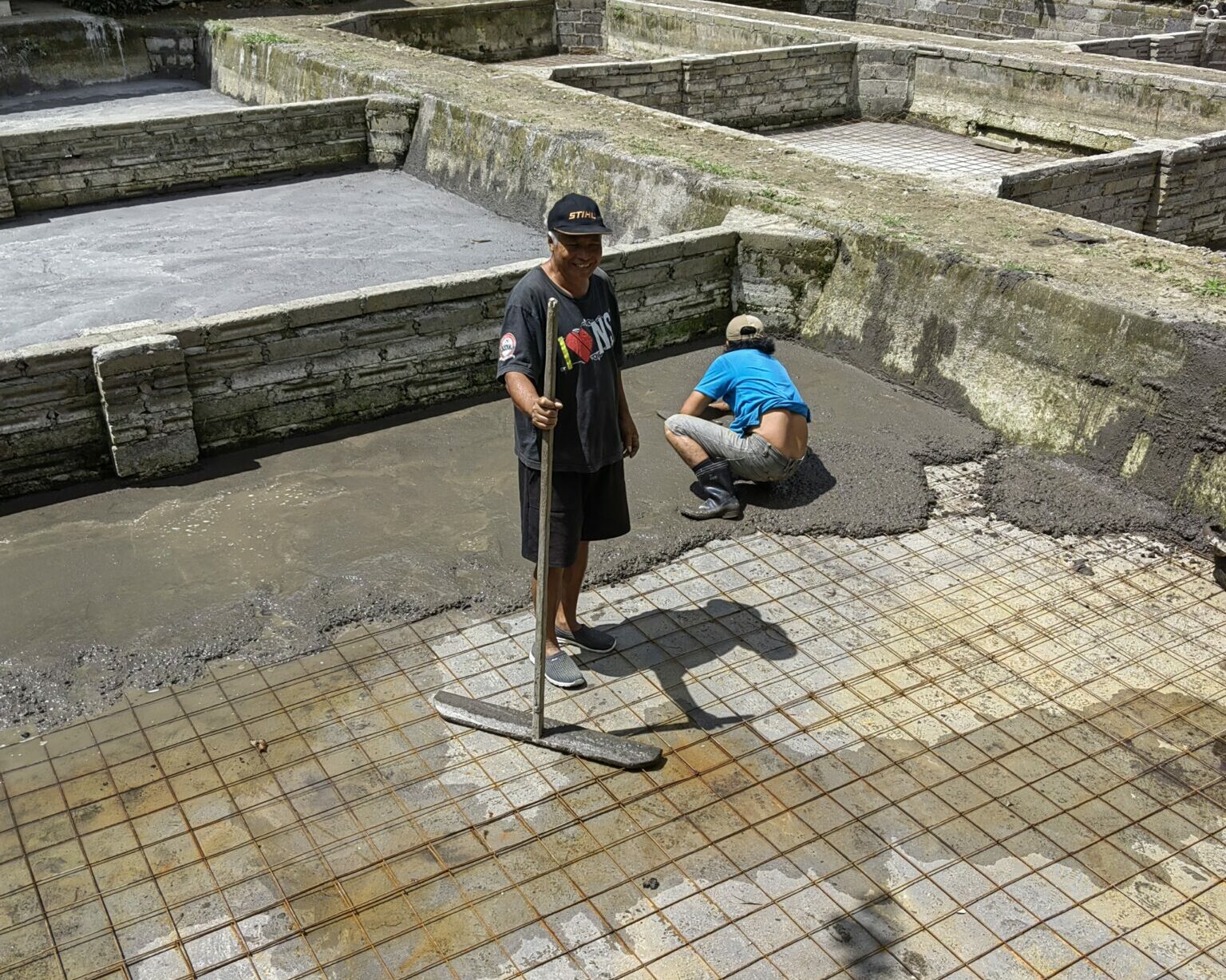
This week, one of our investors returned from Europe where he has been for the last few months. He came up for coffee and to see how we are going. He shook his head at the lobsters, and I wondered what was wrong.
“You only started this operation less than a year ago?”, he asked.
“That’s right, last November, December.”
“But that’s just unbelievable progress,” he exclaimed, while I stared at him in astonishment. “Don’t you think so?” He had to ask at my blank face.
“Well, no. This is what we planned. If anything, it is a little slower than I wanted.” I was genuinely puzzled. And went away to think about it.
We are, in my opinion, a little behind on both the lobsters and the vanilla. The vanilla because of the weather which annoys me as I feel we should have foreseen this and taken action earlier. The lobster because of unreal expectations on my part before we had the data to know what we could do.
But because our plans are always conservative, we’re pretty much spot on with the vanilla and ahead with the lobsters.
So, this is what we said we would do and we’re doing it. Why would people be surprised? I don’t pay a huge amount of attention to the rest of the world, and I guess if I did, I would understand that perhaps doing what you say you will do is not a frequent occurrence. No wonder my son says I am so old fashioned.
Let us have a look at where we are.

We have 23 Gardens of Vanilla containing over 40,000 vines. This makes us very major producers. This has been achieved in two and a half years. Our older gardens are not so good as the later ones, due to mistakes now rectified. For example, few people including us knew that the big white trunked trees grown for softwood and harvested after ten years make the soil unsuitable for anything else. Inhibits growth of everything, including vanilla. We didn’t realise just how much sunshine vanilla likes. We didn’t make our own compost. We planted too close together – fine for a dry year, mistake in a wet year…
Just learning these lessons is a triumph.
This year we expect flowers in Gardens 1-6, and they have already started in all but 5 which had a setback last year when we re-configured it from the trees. Too early to say how big the crop will be, but our change to horizontal growth appears to be working to combat the extra humidity.
We expect to have a harvest next year and be making sales of vanilla this time next year. Not enough to pay dividends, but to more than cover costs. We don’t forecast a dividend before 2025.
We have a big, 1,800 m2 warehouse, which is being properly licensed and prepared to process the vanilla and the lobster distribution. It has a big office which will handle our admin teams. It has a building ideal for a laboratory. This warehouse is paid for the next 20 years.
We have 32 ponds in our lobster farm, and more than 1,000 breeding females. This is enough to supply over 100,000 lobsters per year… which is our long-term aim. We are developing our data to know more about feed and we are growing our own basics, carbohydrates and proteins. To our knowledge, this is the first totally organic aquaculture operation of any size. Local restaurants are enthusiastic, and not only stating their desire to order, but providing us with their organic rubbish to recycle. This we compost, and use to breed insects to feed to the lobsters, rather than direct which would be without a kill stage for pathogens. But the important thing is that we are closing a cycle, ensuring that when we ship out goods, we get something in return. Not money, not energy, but molecules that we can transform into more food. The circle of life.

We have not exactly started with our CSR projects. We look after our employees well, adjusting to their religious requirements and providing holidays where we can. Further education is tricky when we are at the forefront of learning ourselves, and indeed we have students asking about working with us. Too early. We need the laboratory first. We have plans for looking after the traditional customs, with the backing of the Association of Indonesian Kings for custom and the famous Agung Rai for Art. We are in discussions with the Ministry of Cooperatives for a scheme to promote vanilla growing amongst farmers, where we are able to guarantee the quality for them.
We are happy with our administration. We have all the permits and licences required and then some. In Indonesia, there is always another permit. Paul is an expert in getting this sorted. We have a powerful, interested party looking after the finances. Also, a shareholder. Southeast Consulting are a top-notch accounting firm and able to obtain auditing from one of the Big Four accounting practices. We plan an audit for later this year, even though not strictly necessary.
From a financial point of view, we have set this business up entirely on the sale of shares. We have 68 shareholders at the last count. We have forecast paying our first dividend in 2025. We expect that by June of next year we shall receive sufficient income from the lobsters to pay all our running costs. These currently amount to perhaps $12,000 a month, and will no doubt rise to $15,000 by then, so we need just another $100,000 or 1,000 shares or ten more investors (most investors buy 100 shares). But that is the least we can do, and we do want a fully equipped laboratory plus a new pickup, so we shall probably sell another 1,000 shares on top of that.
And then we shall stop.
Why? Because we won’t need to sell any more shares and when the money starts coming in, it means better returns for shareholders. Did I mention that we expect the dividends to have repaid your investment by 2026? Nor considered the increased value of the shares. How much is a share worth when the dividend is the amount you paid for the share?
While the attraction of being a shareholder is immediate, with such a fast ROI, please also bear in mind that we are planning to launch on the market by 2030, quite possibly well before. Think what that will do to leverage the share price.
And as our track record says, we do what we say. Because we only say we will do it when we know we can. And more.
Maybe 20 places left. Make sure you are a shareholder before they run out!
Rex Sumner
Royal Spice Gardens is an Indonesian Foreign Investment Company, in Indonesia known as a Perusahaan Modal Asing (PMA).
NIB Licence number 0220100502286. NPWP: 94.830.504.0- 905.000.
PT Royal Spice Gardens Indonesia, Jl. Raya Pejeng, Tampaksiring, Gianyar, Bali 80552, Indonesia
Website by Simia Solutions / Cre8 Design Studio
Powered by Pak Kriss’s Compliance Framework.
Even in uncertain times, credible, stable & realistic opportunities are available for the astute investor.
Get the edge by obtaining clear, concise and rapid information. Fill out the form to receive our latest prospectus!